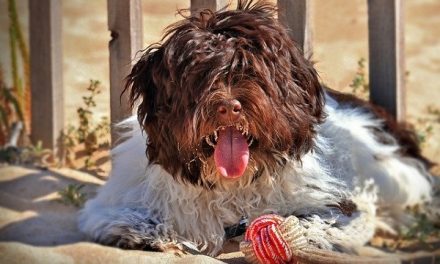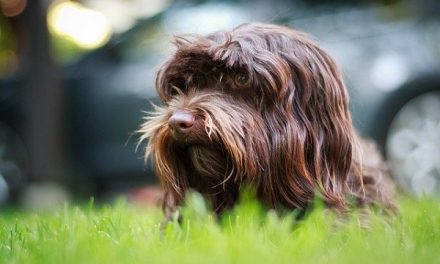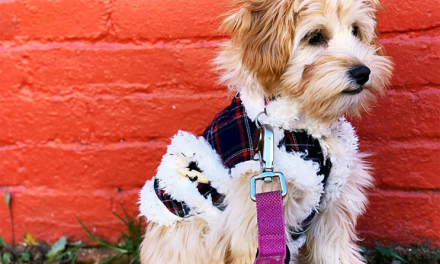Are Havanese dogs hypoallergenic? This is a question that increasing numbers of prospective dog owners are asking, on account of widespread media reports that some dog breeds are hypoallergenic.
The word “hypoallergenic” translates to mean “unlikely to trigger an allergic reaction.” This textbook definition does not say that something labeled as hypoallergenic will never ever trigger an allergic reaction!
In fact, as the Mayo Clinic reports, the United States government doesn’t publish standards under which a product (or a pet) may be deemed hypoallergenic. So the use of this word will always be subject to the user’s own understanding of and purposes for choosing to use this term.
In this article, let’s find out what science has to say about the question, “Are Havanese hypoallergenic?”

Are Havanese Dogs Hypoallergenic?
The short answer to the question “Are Havanese hypoallergenic?” is “no.”
But this is not because Havanese dogs are not hypoallergenic. It is because there is no dog breed that is hypoallergenic.
However, before we explore that statement in more detail, first let’s back up and take a look at how the myth of the hypoallergenic dog even got started in the first place.
To do this, we need to turn back the clock. It is the 1980’s and a blind woman in Hawaii is searching desperately for a guide dog that won’t make her pet-allergic husband violently ill.
She reaches out to a man named Walter Conron, who at that time is serving as the head of the breeding program for Australia’s Royal Guide Dog Association. She asks Mr. Conron to find and train a suitable dog for her. He agrees and begins his search.
Thirty-three failed canine candidates later, Conron crosses a Standard Poodle with a Labrador Retriever and inadvertently creates the Labradoodle, a dog which passes the guide dog tests with flying colors and doesn’t aggravate the woman’s husband’s allergies.
With a little help from Conron’s marketing savvy, Labradoodle puppies were soon flying off the shelves, so to speak, and a myth was born that persists to this day.
Do Havanese Shed?
Rather than asking “Are Havanese hypoallergenic?,” a better and much more accurate question might be, “Do Havanese shed?”
This question speaks to a universal trait that all dog breeds share – a coat that periodically sheds out old, dead hairs and replenishes them with new hairs.
So then how can a dog be said to be “non-shedding,” you might be wondering?
The reason some dogs are said to be non-shedding (the Poodle and the Havanese, which actually share some DNA in common, are both great examples) is because of the texture of their coats.
Let’s take the curly-coated Poodle as an example. The Poodle sheds just like any other dog. But you won’t see the shed-out hair falling all over the ground or coming out onto your couch cushions, your socks or your suit jacket. This is because the surrounding curly, coarse hair catches the shed hair and traps it in the coat.
This also means that Poodle dogs need more grooming than, say, Labrador Retrievers, who shed copiously and all year long and leave evidence of this everywhere they go.
If a Poodle coat isn’t brushed daily, that dead, shed, trapped hair quickly gets tangled in the coat, turns into a mat, abrades the skin and opens it up to infection and often must be physically cut out of the coat to avoid further skin injury.
Of course, the Havanese dog’s long, silky, human hairlike coat is as unlike the Poodle’s fast-growing, coarse, curly coat as possible. And yet both dogs have the same coat trait – a coat that sheds and then traps the great majority of its own shed hair, creating tangles that turn into mats if not brushed out regularly.
The Havanese Fanciers of Canada Club also points out that some Havanese dogs carry a genetic mutation for a short coat (rather than the long showy coat the breed is known for). These short-coated Havanese will naturally shed more than their long-coated cousins. Luckily, this is genetic trait that can be tested for if the need arises.
The bottom line here is that all dogs shed to some degree, even the so-called non-shedding Havanese. But it is how the surrounding coat behaves when hair is shed out that determines whether or not you ever see the dead, shed hair.
Why There Are No Hypoallergenic Dog Breeds
There is still one myth that is perhaps even bigger than the myth of the hypoallergenic dog, and that is the myth that it is dog hair that causes pet allergies in people.
In actuality, what causes the allergic reaction are two proteins called Can f 1 and Can f 2 that are secreted in the dog’s saliva and waste (liquid and solid).
These two proteins can trigger allergies in pet-sensitive people when an allergic person encounters them, whether from a friendly lick, from patting a dog, from sweeping up dog hair, from picking up dog waste on a walk or in some other way.
Here, the more of these proteins a pet-allergic person encounters, the stronger the allergic reaction is likely to be.
And herein lies the real reason why non-shedding or low-shedding dog breeds such as the Havanese are wrongly termed “hypoallergenic.” Because there is less likelihood of encountering these proteins from dead, shed hair lying all over the floor, carpet, chairs, car seats, and other places, there is potentially a lower exposure risk.
Will You Get Pet Allergies From Your Havanese Dog?
If you know that you or someone in your family suffers from pet allergies, the smartest course of action is to simply refrain from bringing a pet into the home.
However, you do have other options if you have your heart set on sharing your life with a Havanese, including the possibility of allergy testing.
A skin-prick test is a common method for detecting allergic reaction to pets.
In some cases, just spending some time with a dog may be sufficient – if you begin to experience classic allergy symptoms such as watering eyes, runny nose, sneezing, et al, shortly after coming in contact with a dog, you may have pet allergies.
There is some evidence supporting early exposure as a method of preventing the onset of allergies and asthma symptoms later in life. Here, by “early,” researchers mean during childhood or the early tween or teenage years.
However, the data is inconclusive and it is best to consult with your allergist before committing to a pet dog if you have any significant concerns for yourself or a loved one.
Another possible option to limit exposure to the aggravating pet proteins is to add a HEPA (high-efficiency particulate air) filtration system to your home to filter out airborne pet dander that may otherwise trigger allergies.
You may also want to place a portable HEPA filtering unit and a humidifier in the bedroom of the person who suffers from pet allergies – and be sure to keep the family dog out of that bedroom!
Some research also suggests that very early exposure to a pet dog (such as in the first 12 to 24 months of life) may create early sensitization that reduces the likelihood a young person will be pet-allergic later in life.
Researchers believe this protective effect is due to the timing of the exposure since a baby’s immune system is developing most rapidly during this early critical phase of life. This is why exposure later in life is not likely to deliver the same positive result.
Should You Get a Havanese Dog?
Making a commitment to any pet is a serious decision. With the sociable, friendly, loving and cuddly Havanese, it is a particularly serious decision for two key reasons.
The first reason is that, out of all the purebred dog breeds, the Havanese is one of the longest-lived. This dog can easily live for 16 years! So when you bring a Havanese dog into your life, you are making a true long-term commitment to a dog who will bond with you and your family very quickly and vice versa.
The second reason is that, unlike with many more reserved dog breeds, the Havanese dog is a breed that loves to express affection. As the American Kennel Club recounts, Havanese dogs were originally bred to be lap dogs to royalty.
Your Havanese will want to sit in your lap and also sit in the lap of every family member. You can expect lots of licks and kisses, lots of requests for pats and playtime and lots of direct contact. Havanese dogs do not do well when left alone for long periods and absolutely need this direct contact to stay healthy and happy.
For everyone’s health, safety and wellbeing, if you or a family member has a known allergy to dogs, it may be best to consult an allergist before choosing a Havanese dog or any dog for your new pet.





Trackbacks/Pingbacks